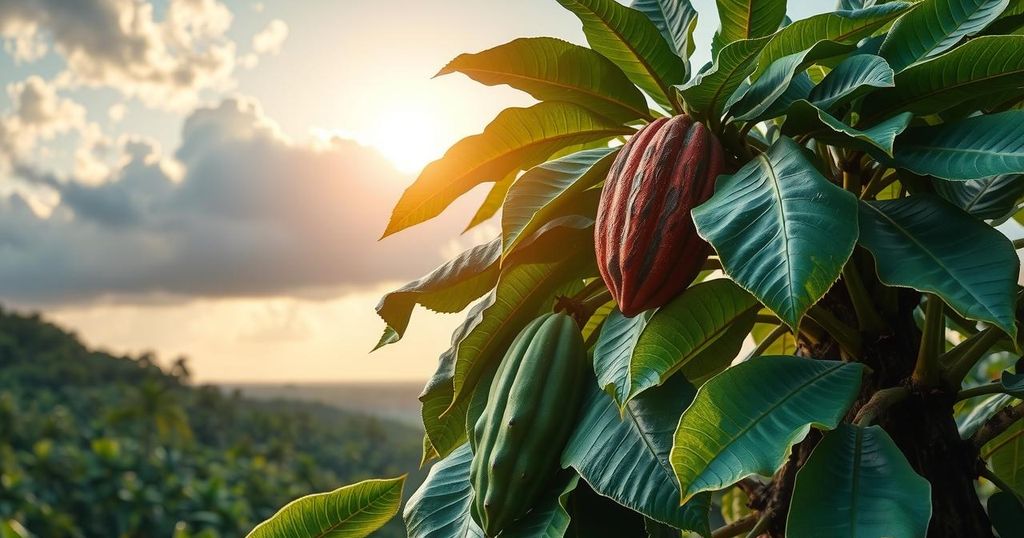Climate Change Threatens Cocoa Production and Raises Chocolate Prices
A recent report reveals that climate change is disrupting cocoa production, leading to higher chocolate prices and negative impacts on farmers. Climate Central highlights increased temperatures in major cocoa-producing regions, complicating harvests. The findings also indicate that the economic strain on farmers threatens their livelihoods, emphasizing the urgent need to address climate change.
Recent research indicates that climate change is adversely affecting cocoa production, the primary ingredient in chocolate, thereby increasing prices and limiting future availability. A study conducted by Climate Central highlights that rising temperatures in key cocoa-producing nations, such as Ghana and the Ivory Coast, have made it increasingly difficult to cultivate cacao trees. The implications extend beyond consumer costs; farmers are also experiencing negative impacts due to declining crop yields.
The Climate Central report analyzed temperature trends over the past decade and concluded that excessive heat has recently extended the periods unsuitable for cacao cultivation. Specifically, temperatures have exceeded 32 degrees Celsius (89.6 degrees Fahrenheit) for at least three weeks more than in previous years. This phenomenon reduces both the quantity and quality of cocoa bean harvests, as prolonged heat causes the plants to suffer, leading to further complications in the cocoa supply chain.
In light of the findings from Christian Aid, it is evident that climate change, driven primarily by fossil fuel consumption, is becoming increasingly detrimental to the livelihoods of farmers globally. Cocoa farmers, many of whom belong to some of the world’s most impoverished communities, depend on stable and favorable growing conditions. Director Osai Ojigho stated, “Growing cocoa is a vital livelihood for many of the poorest people around the world and human-caused climate change is putting that under serious threat.”
The report also outlines rising costs associated with cocoa, highlighting a staggering increase of 136% in prices from July 2022 to February 2024. This surge is attributed to diminished crop yields as temperatures rise due to climate change, alongside challenges from increased rainfall and insect infestations. Consequently, farmers face significant economic challenges as they have fewer cocoa beans to sell, further exacerbating the crisis.
To summarize, climate change poses a severe threat to chocolate production by making cocoa cultivation less viable and increasing prices significantly. The resultant economic impact on farmers, coupled with the potential future scarcity of chocolate, underscores the crucial need for addressing climate change. Ensuring sustainable agricultural practices and improving farmer resilience is paramount in maintaining the chocolate supply chain and supporting the communities that produce it.
In conclusion, the impact of climate change on cocoa production is profound, with rising temperatures directly affecting crop yields and driving up prices. The resulting economic strain on cocoa farmers threatens their livelihoods, particularly those in developing nations who rely on this crop for survival. Addressing climate change is critical to ensuring the future availability of chocolate and the well-being of those who cultivate it.
Original Source: www.bbc.co.uk




Post Comment